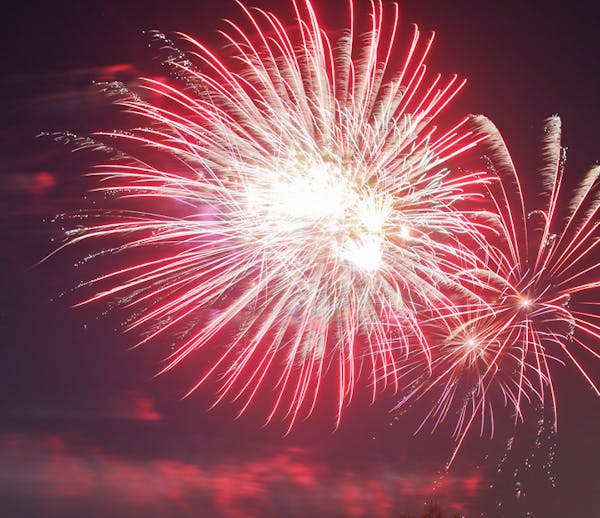July 4th used to be Angie Gagnier's favorite holiday. The smell of fresh-cut grass, the food off the grill, the patriotic music and, finally, fireworks.
"I was always amazed by the colors of fireworks," said Gagnier.
But after being deployed for a year to South Korea with the U.S. Army, she says her love affair with the occasion has fizzled.
"I can't stand [fireworks] — I want to go hide," said Gagnier, who has been diagnosed with post-traumatic stress disorder. "It feels like I am going to get shot at."
PTSD affects about 7.7 million Americans, and for many of them July 4th is an ordeal, not a celebration.
For some veterans, the holiday sparks painful memories; for others the crackling loud noises resemble the horrifying sounds of war.
No research has directly linked fireworks to the onset of an emotional PTSD episode, but military psychologists take the issue seriously, according to Laura Meyers, program coordinator for PTSD treatment at the Minneapolis VA Health Care System.
"It is common for veterans to feel much more anxious or on edge during this week," Meyers said.
Many PTSD sufferers try to avoid reminders of their traumatic experiences, and that's just what some Minnesota veterans plan on doing this weekend.
Samuel Verdeja, a Vietnam veteran who lives in South St. Paul, finds the crackling sounds to be reminders of some of the painful moments in battle.
"The sounds are so intense," said Verdeja, who often goes to see his psychologist a day after July 4th because the sounds tend to stay with him.
"Even after the holiday is over, I still have nightmares about the sounds," Verdeja said.
Heather Shue, a human resources manager in the Minnesota National Guard, spent 16 months on deployment in Iraq. She emphasized that other service members came home with injuries much worse than hers. But even so, she plans to go straight home from work on Thursday because the sounds of the 4th make her uncomfortable.
"Some of the fireworks make the whistling sound, and then they go 'Boom!' That is what the rockets sounded like in Iraq," Shue said.
Meyers said veterans should remember that it's not a sign of weakness to acknowledge their symptoms during the holiday, and that they're best off communicating with family members or friends if they begin to feel symptoms of PTSD.
"Communication is key, and not avoiding talking about it will help."
As for Angie Gagnier, she plans to check into a hotel and get as far away from the noises as possible.
Ashley Griffin • 612-673-4652

Minnesota Sports Hall of Fame: A class-by-class list of all members

This retired journalist changed professional wrestling from Mankato

